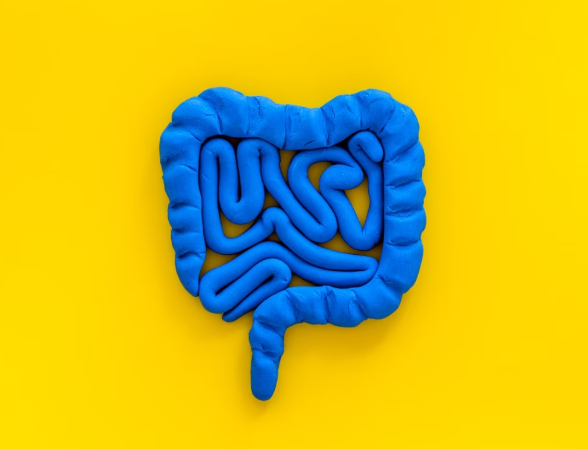The gut microbiome, comprising trillions of microorganisms residing in the human gastrointestinal tract, plays a fundamental role in maintaining various aspects of human health. From aiding in digestion and nutrient absorption to regulating immune function and influencing brain activity, the gut microbiome has far-reaching effects on our overall well-being. However, what if this intricate microbial community were suddenly absent? What would life be like without the gut microbiome? Exploring this hypothetical scenario sheds light on the indispensable role these microorganisms play in human physiology and health.
Cardiovascular Health: In the absence of gut microbiota: Metabolites like trimethylamine N-oxide (TMAO) derived from dietary choline and L-carnitine would not be produced, potentially reducing the risk of cardiovascular diseases associated with high TMAO levels.
Neurotransmitter Regulation: Without gut microbiota: Synthesis of neurotransmitters such as histamine, serotonin, GABA, and catecholamines would cease, potentially affecting mood regulation, gut motility, and cognitive function.
Gut-brain axis communication mediated by microbial-produced neurotransmitters would be disrupted, potentially affecting mental health and cognitive function.
Gastro-transmitter Production: In the absence of gut microbiota: Production of gaseous neurotransmitters like nitric oxide (NO) and hydrogen sulfide (H2S) would cease, potentially affecting gut motility and glycemic regulation.
Endocannabinoid System Modulation: Without gut microbiota: Modulation of the endocannabinoid system through the production of microbiota-derived metabolites would be altered, potentially affecting glucose and energy metabolism regulation.
Appetite Regulation: In the absence of gut microbiota: Modulation of appetite-regulating pathways by microbial proteins like ClpB would be disrupted, potentially affecting food intake and body weight regulation.
Endocrine Function: Without gut microbiota: Regulation of host endocrine functions by microbial metabolites and proteins would be disrupted, potentially affecting metabolism, appetite, and gut barrier function.
Immune Regulation: In the absence of gut microbiota: Immune dysregulation may occur, potentially leading to inflammation and increased susceptibility to infections and autoimmune diseases.
Microbial Interactions: Without gut microbiota: Complex microbial interactions within the gut ecosystem would be disrupted, potentially affecting microbial diversity, colonization resistance, and ecosystem stability.
Vitamin Synthesis: Gut microbiota play a crucial role in synthesizing vitamins such as vitamin K and certain B vitamins. Without gut microbiota, the synthesis of these vitamins would be impaired, potentially leading to vitamin deficiencies and related health issues.
Fermentation and SCFA Production: Gut microbiota ferment dietary fibers and produce short-chain fatty acids (SCFAs) like acetate, propionate, and butyrate. Without gut microbiota, fermentation and SCFA production would cease, potentially affecting gut health, immune function, and energy metabolism regulation.
Gut Barrier Function: Gut microbiota contribute to maintaining gut barrier integrity. Without gut microbiota, the gut barrier may become compromised, leading to increased gut permeability and susceptibility to inflammatory bowel diseases (IBD) and other gut-related disorders.
Digestive Enzyme Production: Gut microbiota produce enzymes that aid in the digestion of certain carbohydrates and proteins. Without gut microbiota, the efficiency of nutrient digestion and absorption may be compromised, potentially leading to nutrient deficiencies and related health issues.
Microbial-Host Signaling: Gut microbiota participate in signaling pathways that regulate host metabolism, immunity, and inflammation. Without gut microbiota, these signaling pathways may be dysregulated, potentially leading to metabolic disorders and immune dysfunction.
Hormone Regulation: Gut microbiota influence the production and metabolism of hormones such as leptin and ghrelin, which regulate appetite and energy balance. Without gut microbiota, hormone regulation may be altered, potentially leading to disruptions in appetite control and energy metabolism.
Microbial Detoxification: Gut microbiota play a role in detoxifying harmful substances and xenobiotics. Without gut microbiota, the body may be less efficient at detoxification, potentially increasing the risk of toxin-related health issues.
Allergy and Autoimmunity: Gut microbiota play a crucial role in immune system development and tolerance. Without gut microbiota, the risk of developing allergies and autoimmune diseases may increase due to immune dysregulation and loss of immune tolerance.
Brain Development and Function: Gut microbiota influence neurodevelopment and brain function through the gut-brain axis. Without gut microbiota, brain development and cognitive function may be affected, potentially leading to neurological disorders and cognitive impairments.
Mucosal Immunity: Gut microbiota interact with the mucosal immune system to maintain gut homeostasis and protect against pathogens. Without gut microbiota, mucosal immunity may be compromised, leading to increased susceptibility to gut infections and inflammatory diseases.
Microbial-Host Metabolic Interactions: Gut microbiota interact with host metabolism, influencing energy extraction from food and storage. Without gut microbiota, host metabolism may be dysregulated, potentially leading to metabolic disorders such as obesity and metabolic syndrome.
